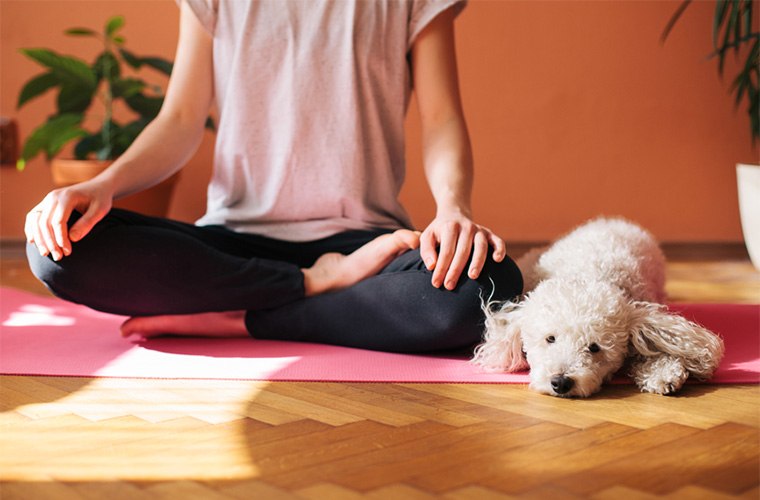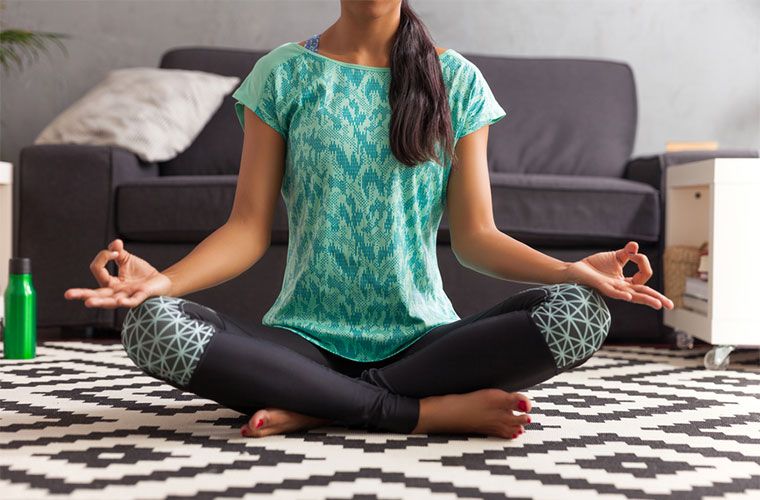5 Things You Need to Know About Vedic Meditation
That's when she turned to Ben Turshen, vedic meditation instructor (and former lawyer turned SoulCycle instructor). Vedic mediation is designed for people living busy lives, as opposed to, say, types of meditation designed for monks on mountaintops, Turshen explains. Many of his students work in demanding industries like finance and public relations, and vedic meditation has helped them sleep and focus better, react to stressful situations much more calmly, and start to actually enjoy their workouts.
While Kollmer hasn’t really changed her exercise habits now that's she's all better—she still hops on a yellow bike several times a week and runs marathons—her sweat sessions serve a different purpose now. “I love SoulCycle, it used to be my stress reliever, but I needed a dependency-free mechanism, she says. “As soon as I learned how to meditate, I realized the challenges around me didn’t change, but my reaction became very different.”
Here's are five basic facts about vedic meditation you should know...I mean, not that you have stress or anything.
Originally posted September 11, 2014. Updated January 23, 2017.

1. It's an effortless technique
"Vedic meditation uses a very simple technique," Turshen explains. "The mind and body silently experience a particular sound, a mantra, and settle down automatically and spontaneously without any effort, focus, or concentration. It takes the mind beyond thought to its most settled state while maintaining full alertness—a state of supreme inner contentedness."

2. You will likely need to set aside some TV time to do it
As part of the practice, you need to devote 20 minutes in the morning and in the late afternoon or at night, he explains. Turshen puts on a monthly course that consists of five hour-long sessions where you learn about vedic meditation and start to practice with his guidance.

3. You can practice anywhere
“Any place where you can sit comfortably with your back supported and head free,” Turshen says (AKA if you snag a spot on a subway or if you're in the passenger seat in traffic, feel free to meditate on your commute home.)

4. It can help you sleep better (than meds)
“I was a first year associate at a big New York City law firm working in the corporate department. I got to a point where I couldn’t manage my stress or anxiety. I wasn’t sleeping at night. That’s when I found this form of meditation,” Turshen says. Both Lauren Plate, 28, who works at Edelman Public Relations, and Kollmer also agree that meditating has helped them sleep better.

5. It can make your workouts more fun
For Plate, meditating has helped her transform her workouts from temporary stress relievers, to actually enjoying them, “I used to use my workouts as time to get some stress out, now I find that I’m a little more present and centered during the workout. It’s no longer about me clearing my head.”

{{post.sponsorText}}
Even though stress can actually be a good thing (seriously!), it can also cause skin probs (not fun). Here are 6 ways stress affects your skin.
Loading More Posts...